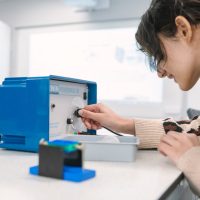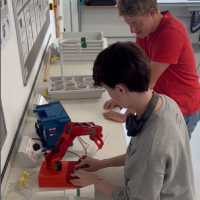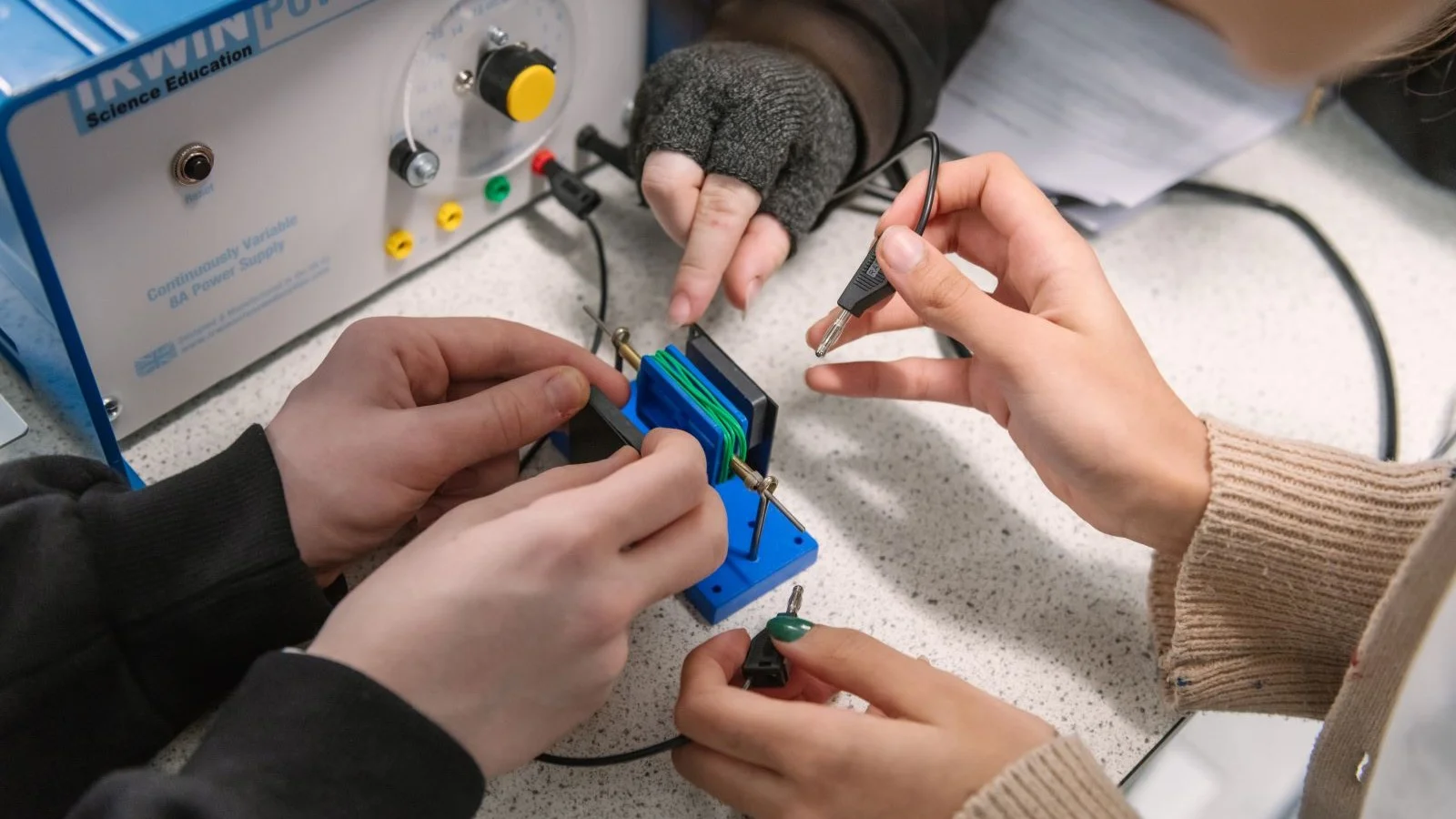
Physics
What is Physics? Basically, Physics tries to explain how the universe works as simply as possible, but no simpler. From Quarks to Quasars, Physics is all about understanding and predicting nature. Together we will look at how our world (and beyond) behaves and try to make sense of it. You will enjoy Physics if you want to find out about life, the universe and everything; develop models to explain how the world we live in works; sharpen your problem-solving skills and see how physics is used all around us. You will discover that our ideas of how things work have changed over the centuries; scientists are not always ‘right’. A theory only lasts until an experiment proves it wrong! Then we need a new one. The course places great emphasis on the practical uses of the subject and is divided into themes. You still study all the Physics you would expect, it is just packaged differently and, we think, in a more exciting and enjoyable way. By the end you will see why Physics is so important to our world!
- Moving & keeping still, structures & sports: forces, motion & energy
- Why things don’t break: material science
- Electricity: the most versatile form of energy
- Telescopes, LASERs & musical instruments: waves
- Atomic and quantum physics
- Particle physics
- Planets & satellites: circular motion & gravity
- Astrophysics: heat, gases & thermodynamics
- Astrophysics: radioactivity & nuclear physics
- Cosmology
- Electromagnetism: Electric & magnetic fields
- Earthquake-proof buildings: oscillations
- Environmental physics: sources of energy & their impact on the planet
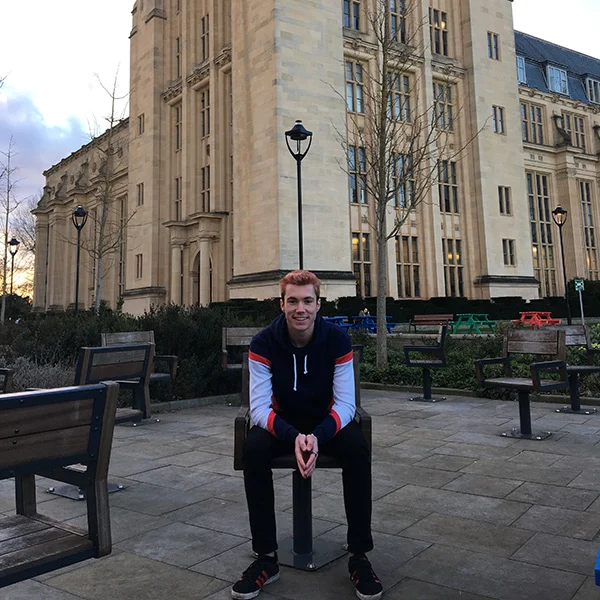
William Smith
Studied: Physics, Maths, Computer Science + AS Chemistry
Progression: Physics, University of Bristol (2.1)
Following his degree, Will stayed in Bristol as a postgraduate researcher and studied for his Masters where he completed a project which involved devising a new technique to measure the mechanical properties of cells in the blood for disease diagnosis, funded by cancer research UK. He is now working as a consultant and data analyst at a tech startup in the video gaming industry.
William says: “Studying at Varndean was such a rewarding experience for me, with excellent teachers who I’ll always remember supporting me every step of the way.”
Course Essentials
Courses Available
A Level
PLUS
Grade 6 in both GCSE Physics and another Science GCSE
Or
2 x Grade 6 in GCSE Combined Science
PLUS
Grade 6 in GCSE Maths
Students may also need to attend additional Maths support class if not taking A Level maths, as required.
Assessment
Three exams at the end of the course, one on each ‘component’.
Career Pathways
Many students go on to degree courses in Physics, Astronomy, Mathematics, Engineering, Research, Financial Management, Law, Medicine and numerous other fields. Physics is an in-demand subject in the UK and, indeed, worldwide.
Transferable Skills
Analysis; problem-solving; communication; modelling; research; mathematics; evidence-based decision-making.
Other Information
A Level students choosing NOT to study A level Maths will need to enrol for the essential Maths support course to cover the knowledge and skills needed beyond GCSE. You should be aware, however, that not studying Maths beyond GCSE will prevent you from applying to most Physics and Engineering degrees.
Enquiries To
Jason Wye: jdw@varndean.ac.uk
News
Students Build Robotic Arm
A group of our talented Physics and Engineering students successfully built a fully functioning robotic arm—a remarkable feat!
Will said about his time at Varndean, ‘When I first came here I really liked the Physics department. I didn’t know much about engineering when I started it, but from doing this project I’m now looking at doing Engineering at University.’
Congratulations to Will Hooper, Eddie Baker, Giada van Spaendonk, and Alan Sabu for their exceptional effort and teamwork on this project.
See the full video here: https://www.instagram.com/p/C_DRHKbIXJZ/
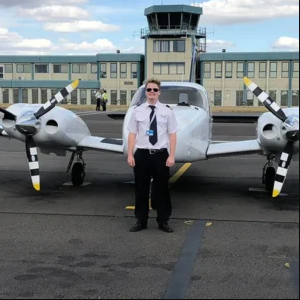
Ben Greenfield
Studied: Physics, Maths, Psychology
Progression: CAE Oxford Aviation Academy University
After having trained at CAE Oxford Aviation Academy and acquiring a degree in Air Transport Management, Ben started training and flying for EasyJet in March 2019 and is currently finishing his training with the company. His future career plans involve staying at EasyJet and hopefully gaining captaincy!
Ben says: “Varndean has a brilliant Physics department, extremely helpful, willing to go out their way to help if you’re struggling on a particular subject. And an extremely passionate and involved Psychology department”


